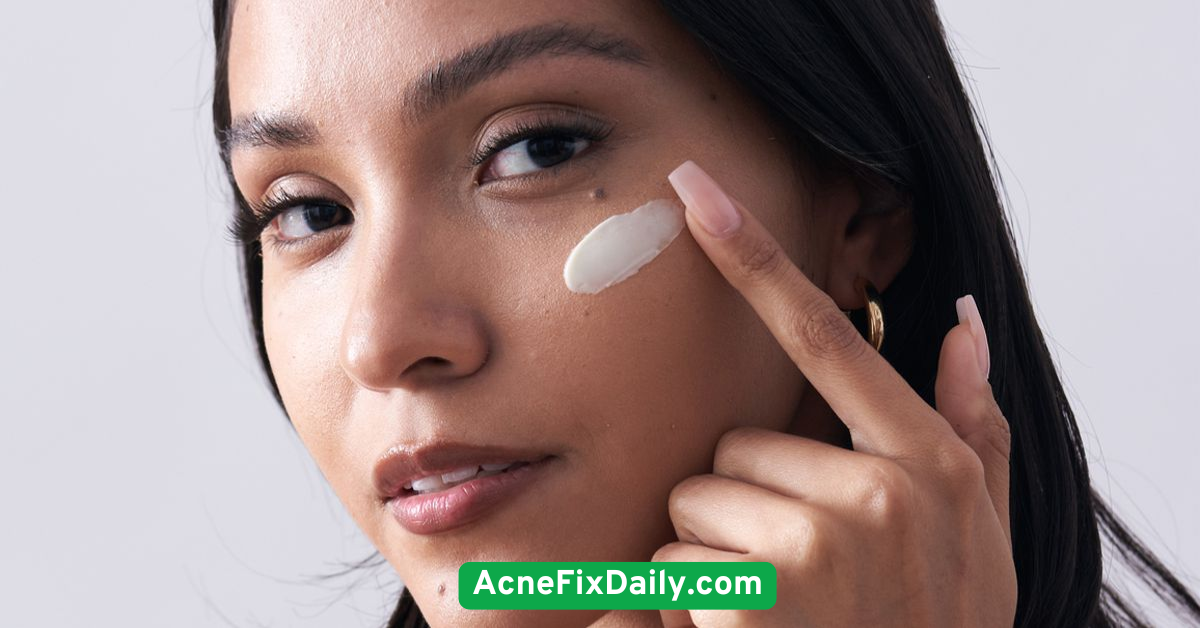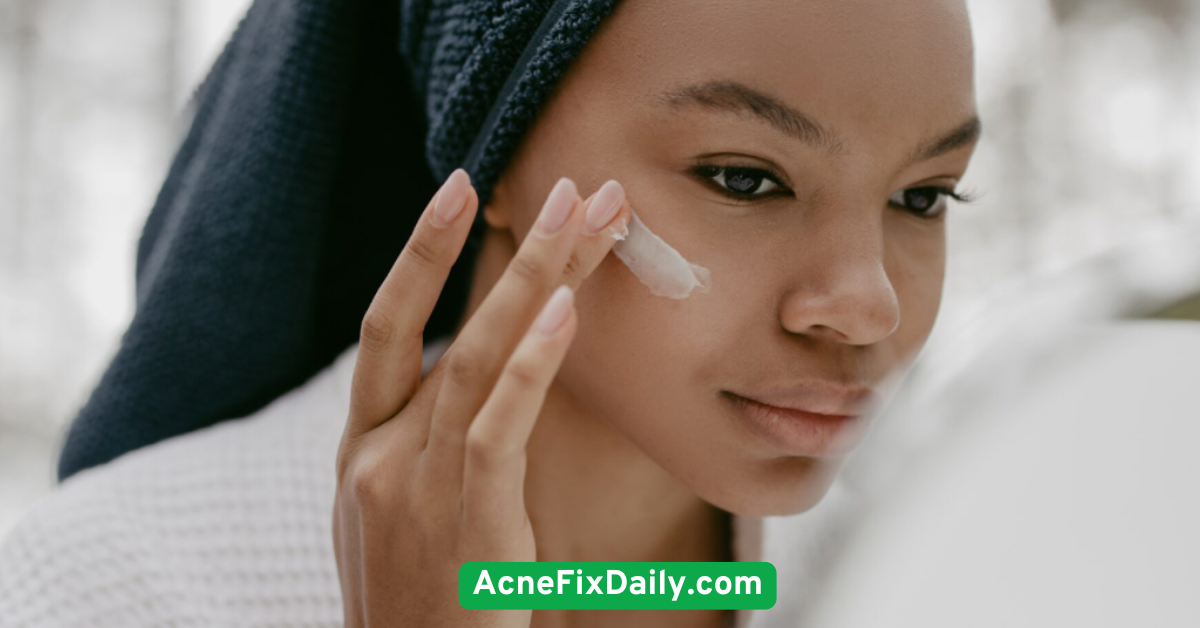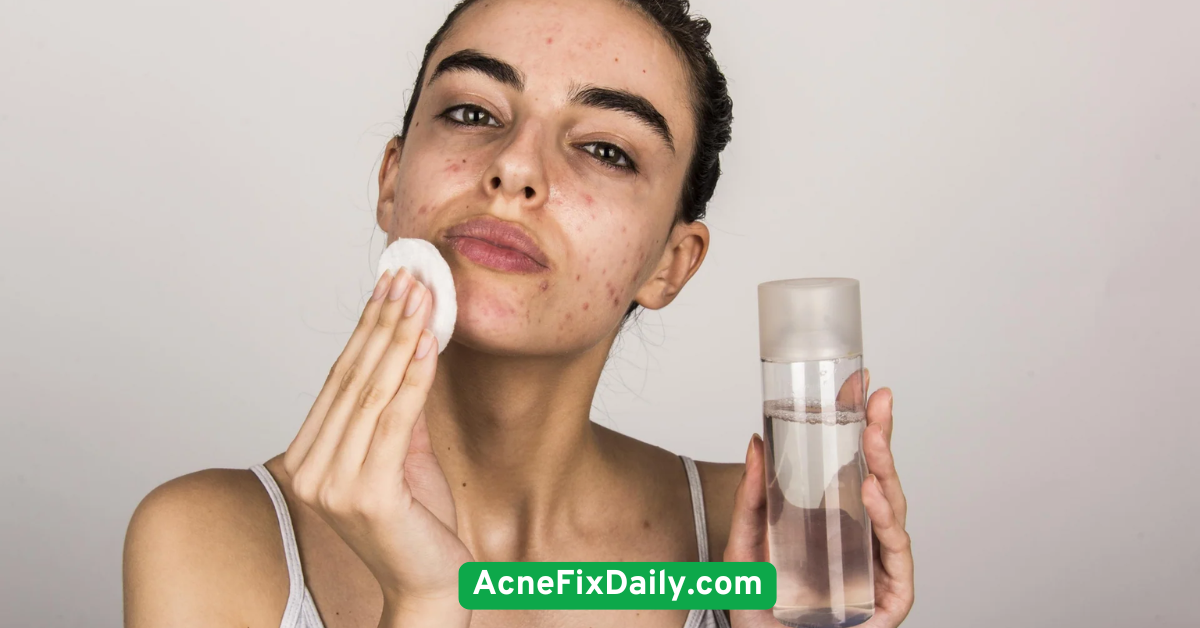30 Powerful Skincare Tips to Control Oil
Oily skin can sometimes feel like an endless battle. You wake up excited to face the day, only to find your face already gleaming with unwanted shine by mid-morning. But don’t worry — oily skin isn’t a curse, it’s simply your skin’s natural oil production going into overdrive. With the right skincare routine and some smart habits, you can keep excess oil in check and enjoy a balanced, fresh complexion every day! In this article, I’ll walk you through 30 powerful skincare tips designed specifically to control oil effectively. These tips are practical, budget-friendly, and gentle on your skin, helping you manage shine without harsh ingredients or expensive treatments. Let’s dive right in!
1. Understand Your Skin Type
Before you start any skincare routine, it’s important to truly understand your skin type. Oily skin is characterized by excess sebum production, leading to shine, enlarged pores, and sometimes breakouts. However, oily skin can vary — some people experience combination skin where only certain areas are oily. Knowing your specific skin pattern helps you choose the right products and avoid over-treating your skin, which can actually cause more oil production.To determine your skin type, cleanse your face and wait for an hour without applying any product. If your face feels shiny and greasy, you likely have oily skin. But if your cheeks feel dry and only your forehead and nose shine, you might have combination skin. This understanding is the foundation for controlling oil effectively.

2. Use a Gentle Foaming Cleanser
Cleansing is the first step to managing oily skin, but it’s crucial to pick the right cleanser. A gentle foaming cleanser specifically formulated for oily skin can remove excess oil and impurities without stripping your skin’s natural moisture barrier. Avoid harsh cleansers with sulfates or alcohol, as they can irritate your skin and trigger more oil production as a defense mechanism.Look for cleansers containing salicylic acid or tea tree oil, which help unclog pores and reduce bacteria that contribute to breakouts. Wash your face twice daily — once in the morning and once before bed — to keep oil under control without over-drying.

3. Avoid Over-Washing Your Face
It might be tempting to wash your face multiple times a day to combat oiliness, but over-washing can backfire. Excessive cleansing strips away natural oils, leading your skin to compensate by producing even more sebum. This can worsen oiliness and irritation.Stick to washing your face twice a day with a mild cleanser, and use lukewarm water rather than hot water, which can dry out your skin. Between washes, if you feel oily, gently blot with oil-absorbing sheets instead of washing again.

4. Incorporate Salicylic Acid in Your Routine
Salicylic acid is a superstar ingredient for oily and acne-prone skin. It works by exfoliating inside the pores, removing dead skin cells and excess oil, which helps prevent clogged pores and breakouts. Unlike some exfoliants, salicylic acid is gentle and anti-inflammatory.You can find salicylic acid in cleansers, toners, and spot treatments. Start slowly — applying it a few times a week — to avoid irritation, then increase frequency as your skin tolerates it. This ingredient balances oil without over-drying.

5. Apply a Lightweight, Oil-Free Moisturizer
Many with oily skin skip moisturizer fearing it will worsen shine — but this is a big misconception! Moisturizing is essential to maintain your skin’s hydration and prevent overproduction of oil. Choose a lightweight, oil-free, and non-comedogenic moisturizer that hydrates without clogging pores.Gel-based or water-based moisturizers work wonders on oily skin, absorbing quickly and leaving a matte finish. Ingredients like hyaluronic acid provide hydration without adding grease, helping your skin feel comfortable and balanced throughout the day.

6. Use a Clay Mask Weekly
Clay masks are excellent for oily skin because they absorb excess oil and impurities from deep within the pores. Using a clay mask once or twice a week can help reduce shine, minimize pores, and improve overall skin texture.Look for masks containing kaolin or bentonite clay — these natural ingredients draw out toxins and control oil production. Apply the mask on a clean face, leave it on until it dries, then rinse with lukewarm water. This simple step can refresh oily skin and prevent buildup that leads to acne.

7. Don’t Skip Sunscreen — Choose Oil-Free Formulas
Sun protection is a must for everyone, including those with oily skin. However, many sunscreens feel heavy or greasy, which can deter oily skin types from applying them daily. The good news? There are plenty of oil-free, mattifying sunscreens available that protect your skin without adding shine.Look for mineral-based sunscreens with zinc oxide or titanium dioxide, which provide broad-spectrum protection and help control oil. Applying sunscreen daily prevents sun damage that can worsen skin texture and trigger more oil production.

8. Blot Excess Oil During the Day
If oily skin causes midday shine, blotting papers can be a lifesaver. These lightweight sheets absorb excess oil without disturbing your makeup or skincare.Keep a pack handy in your purse or desk drawer and gently press onto shiny areas when needed. Avoid rubbing, which can irritate the skin or spread bacteria. Blotting is a quick, budget-friendly fix to maintain a fresh look all day long.

9. Avoid Heavy Makeup Products
Thick, heavy makeup can clog pores and trap oil, leading to breakouts and a greasy appearance. For oily skin, it’s best to use lightweight, oil-free makeup products formulated specifically for oily or acne-prone skin.Look for foundations labeled “non-comedogenic” or “matte finish.” Mineral makeup is also a great option since it tends to be lighter and less pore-clogging. Always remove makeup thoroughly at night to prevent buildup.

10. Use Non-Comedogenic Makeup
Non-comedogenic makeup products are designed not to clog pores, which is vital for controlling oil and preventing acne. These products allow your skin to breathe while providing coverage and protection.Makeup primers, foundations, powders, and even blushes come in non-comedogenic formulas. Using these consistently can reduce the chance of breakouts and excess oil production, helping your skin stay clearer and less shiny.

11. Exfoliate Regularly but Gently
Exfoliation removes dead skin cells that can clog pores and contribute to oily buildup. However, aggressive exfoliation can irritate your skin and stimulate more oil production. Aim for gentle exfoliation once or twice a week using products with alpha hydroxy acids (AHAs) or beta hydroxy acids (BHAs).Avoid harsh physical scrubs that can cause micro-tears and inflammation. Instead, opt for chemical exfoliants or mild enzyme-based exfoliators that smooth skin texture and help pores breathe.

12. Try Niacinamide for Oil Control
Niacinamide, a form of vitamin B3, has gained popularity for its ability to regulate sebum production and improve skin texture. It also strengthens the skin barrier and reduces inflammation, making it perfect for oily, acne-prone skin.Incorporate serums or moisturizers containing niacinamide into your routine to balance oil, minimize pores, and boost overall skin health. It’s gentle enough for daily use and suits all skin types.

13. Avoid Touching Your Face Often
This simple habit can make a significant difference. Your hands carry dirt, bacteria, and oil that can transfer to your face, worsening oiliness and causing breakouts. Try to avoid touching your face throughout the day, especially if your hands aren’t freshly washed.If you need to touch your face, make sure your hands are clean. This mindful habit supports clearer, less oily skin.

14. Use Toners with Witch Hazel
Witch hazel is a natural astringent that helps tighten pores and reduce excess oil. Using a gentle witch hazel toner after cleansing can refresh your skin and remove leftover impurities.Choose alcohol-free witch hazel toners to avoid drying out your skin. Applying toner balances your skin’s pH and preps it for moisturizer, keeping oil production in check.

15. Opt for Mattifying Primers Before Makeup
Mattifying primers create a smooth, shine-free base for your makeup. They absorb oil throughout the day and help your makeup stay in place longer without slipping or looking greasy.Apply a thin layer of primer before foundation to reduce shine and blur pores. This step can boost your confidence and keep your skin looking fresh for hours.

16. Stay Hydrated Throughout the Day
Drinking enough water is often overlooked in skincare but it’s crucial for maintaining balanced skin. Dehydration can cause your skin to produce more oil as a protective measure.Aim to drink at least eight glasses of water daily and eat water-rich foods like cucumbers and watermelon. Proper hydration supports your skin’s natural functions and helps control oil.

17. Incorporate Retinoids Gradually
Retinoids are vitamin A derivatives that promote cell turnover and unclog pores, making them powerful tools for oily skin and acne control. They also improve skin texture and reduce inflammation.Start with low-strength retinoids and use them 2-3 times a week to let your skin build tolerance. Consult with a dermatologist if you have sensitive skin or are new to retinoids. These products can dramatically improve oily skin with consistent use.

18. Use Green Tea Extract Skincare Products
Green tea extract is packed with antioxidants that calm inflammation and reduce oil production. Incorporating products with green tea can soothe oily skin and protect it from environmental damage.Look for green tea-infused toners, serums, or moisturizers as a natural way to support oil control and maintain healthy skin balance.

19. Maintain a Healthy Diet to Support Skin
What you eat directly affects your skin’s health. Diets high in sugar and processed foods can spike insulin levels and increase oil production. Focus on a balanced diet rich in fruits, vegetables, lean proteins, and healthy fats.Foods rich in omega-3 fatty acids, zinc, and antioxidants can reduce inflammation and help regulate sebum. Remember, glowing skin starts from within!

20. Manage Stress Levels to Reduce Oil Production
Stress triggers the release of cortisol, a hormone that can increase oil production and worsen acne. Managing stress through mindfulness, exercise, or hobbies can improve your skin’s condition.Try yoga, meditation, or even daily walks to lower stress. A calm mind promotes clearer, less oily skin over time.

21. Use Oil-Absorbing Sheets for Quick Fixes
Oil-absorbing sheets are an instant savior for anyone dealing with oily skin during the day. These thin sheets help remove excess oil without smudging your makeup or irritating your skin.Keep a pack in your bag or at your desk and gently press on oily areas like your forehead, nose, and chin. It’s a quick, affordable, and mess-free way to stay matte on the go.

22. Avoid Heavy, Oily Hair Products Near Your Face
Sometimes the oiliness on your face can come from your hair products. Heavy conditioners, serums, or styling gels can transfer oils to your skin, especially around the hairline.Choose lightweight, non-greasy hair products and keep your hair away from your face during the day to reduce the risk of extra oil and breakouts.

23. Clean Your Phone and Pillowcases Regularly
Your phone screen and pillowcases can harbor dirt, oil, and bacteria that transfer to your skin, worsening oiliness and acne. Clean your phone with antibacterial wipes regularly and change pillowcases at least once a week.This simple hygiene step reduces the chances of clogged pores and skin irritation, keeping your skin fresher and less oily.

24. Avoid Hot Water Showers
Though it feels relaxing, hot water can strip your skin of natural oils, leading to dryness and triggering your skin to produce more oil in response.Opt for lukewarm water when washing your face and showering to maintain your skin’s moisture balance and prevent excessive oil production.

25. Incorporate Antioxidants in Your Skincare Routine
Antioxidants like vitamin C and E help protect your skin from environmental damage and inflammation, which can exacerbate oiliness and acne.Use serums or moisturizers enriched with antioxidants to strengthen your skin’s barrier, improve texture, and balance oil production naturally.

26. Avoid Scented Products That May Irritate Skin
Fragrances and certain additives in skincare products can irritate oily skin, leading to redness and increased oil production as your skin tries to protect itself.Stick to fragrance-free or hypoallergenic products formulated for sensitive or oily skin to minimize irritation and maintain a calm, balanced complexion.

27. Use Micellar Water for Quick Cleansing
Micellar water is a gentle, no-rinse cleanser that effectively removes dirt, oil, and makeup without harsh rubbing or drying out your skin.Use micellar water as a quick cleanser or makeup remover, especially when you want to refresh your skin between washes without over-cleansing.

28. Introduce Zinc into Your Skincare
Zinc is known for its anti-inflammatory and oil-regulating properties. Skincare products containing zinc can help reduce sebum production and soothe irritated skin.Look for zinc oxide in sunscreens or zinc-based serums and creams to control oil while promoting skin healing.

29. Don’t Skip Nighttime Skincare Routine
Your skin repairs itself overnight, so a consistent nighttime skincare routine is essential for managing oily skin. Use a gentle cleanser, toner, treatment serums like salicylic acid or niacinamide, and a lightweight moisturizer.Avoid heavy creams that can clog pores, and focus on products that balance oil production and support skin renewal.

30. Consult a Dermatologist for Persistent Issues
If you’ve tried multiple tips and still struggle with excessive oil and acne, it’s a good idea to consult a dermatologist. They can assess your skin and recommend prescription treatments or professional procedures tailored to your needs.Sometimes, oily skin requires medical-grade care to regain balance and health, so professional advice can make a big difference.

Conclusion
Controlling oily skin is definitely a journey, but with the right approach, it’s entirely manageable. These 30 powerful skincare tips offer practical and effective ways to reduce shine, minimize pores, and keep your complexion fresh and balanced. Remember, gentle care and consistency are key — avoid harsh products and listen to what your skin needs. Hydrate well, maintain a clean routine, and choose products wisely. And if things feel overwhelming, never hesitate to seek professional guidance.





